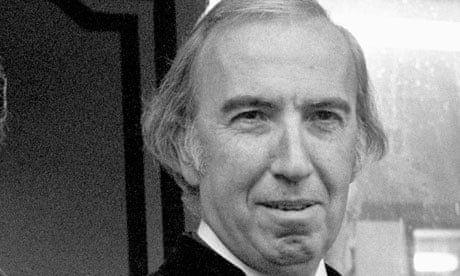The politician, author, barrister and constitutional expert Lord St John of Fawsley has died at the age of 82.
As Norman St John-Stevas, he served in the government of Edward Heath as minister for education and the arts and was a member of Margaret Thatcher's first cabinet as leader of the Commons.
He was sacked by Thatcher in 1981 as she began her clear-out of the so-called wets in her administration, and was made a life peer in 1987.
During his brief cabinet tenure, he made a lasting mark on the House of Commons by creating the select committee system, which allows panels of backbenchers to interrogate ministers and launch inquiries into issues of political controversy.
But he was never what Thatcher termed "one of us", opposing the harshness of her monetarist economic policies and reportedly coining the nickname Tina, from the initials of her mantra "There is no alternative".
After leaving government he remained on the Tory backbenches, but also devoted himself to the worlds of academia and the arts, serving as chairman of the Royal Fine Art Commission and master of Emmanuel College, Cambridge.
He was a prolific author and a prominent Catholic, a chairman of Booker prize judges and the editor of the definitive edition of the literary works of the Victorian constitutionalist Walter Bagehot.
A spokesman for his family said he died at his home in London on Friday after a short illness.
The Conservative leader of the Lords, Lord Strathclyde, said: "He was a great parliamentarian and will be missed by all who knew him in both houses of parliament.
"He was a colourful, deeply spiritual and wise figure whose greatest legacy to the House of Commons remains the select committee, which he created in 1979 as leader of the house."
The former Tory minister Lord Heseltine said: "Norman was a friend of mine. We met first at Oxford University in 1951. We remained good friends throughout that time. He was a one-off, a very unusual character, combining intellect and academic talent with the realities of politics.
"He also had a great sense of humour. As a cabinet minister he used to sit at the far end of the cabinet table and it was quite frequent that there would be an eruption of laughter from that quarter at something he said. That used to annoy the prime minister but Norman had the great skill of being able to rephrase a joke to make it sound wholly innocuous."
Lord Tebbit, another former Conservative minister, said: "He did a great deal as a clear and outspoken advocate in government for the arts."
